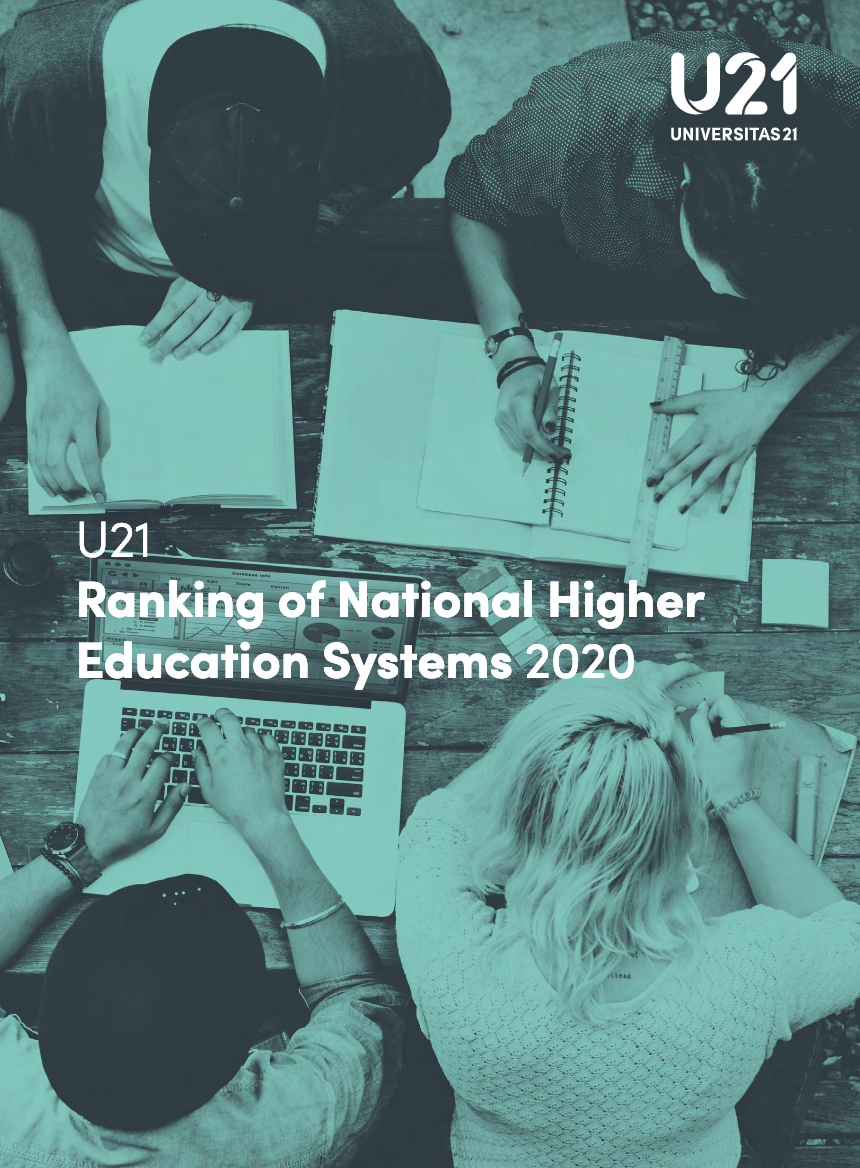U21 has published its ninth and final annual ranking of national systems of higher education, a unique report produced under the leadership of Professor Ross Williams at the University of Melbourne.
- The last in these ranking reports shows strong a relationship between increases in research funding and measurable increases in research performance after three or four years.
- The project has demonstrated that International connectivity (joint co-authorship etc.) increases the impact of research.
- This longitudinal data provide vital insights into which countries are making the greatest improvements in higher education outcomes, what they are doing to achieve this, and what might be done to improve the higher education sector in countries falling behind.
There are many rankings reports published each year, but the national ranking of systems is different because it evaluates national systems of higher education and not individual H.E. institutions. It examines the education and training of a country's people, the development of relationships between Higher Education institutions and external stakeholders and the production of innovative research.
24 measures of performance grouped into four modules are used in the survey: Resources, Environment, Connectivity and Output examining a number of institutions within a nation. The Rankings also present a separate report on estimates of a country’s performance relative to its level of GDP per capita.

In the overall ranking, the United States is ranked first followed by Switzerland and Denmark. The other countries in the top ten have scores within a narrow band of 82 to 84. In rank order they are Singapore, Sweden, the United Kingdom, Canada, Finland, Australia and the Netherlands. Compared with last year’s ranking Singapore rose three places and Denmark two places. The United Kingdom fell three places owing to a fall in the rank for Resources. After allowing for differences in income levels, the top ranked countries are Finland, South Africa, the United Kingdom, Denmark and Canada. China and India perform above expected values. The report information is available online where there is a facility to search and compare current and previous year’s data. The 2020 Ranking page can be found here for more information.
Lead author, Professor Ross Williams at the University of Melbourne said; ‘Over the last decade the rankings have tracked the movement to international connectiveness in higher education and its positive effect on national performance. Domestic links with the private sector and other external stakeholders are also important. National systems that are inward looking flounder.
An important finding was the strong relationship between increases in research funding and measurable increases in research performance after three or four years. The project has demonstrated that International connectivity (joint co-authorship etc.) increases the impact of research: knowledge of the research is expanded; the researchers become better known and are thus linked into new international research projects and findings. By linking outcomes to inputs, measures of efficiency have been developed.’
Professor Sir David Eastwood, Chair of Universitas 21, commented: ‘This is the ninth and final year of the U21 Rankings Project, which has now generated a uniquely important set of longitudinal data on the impact of national approaches on higher education. The U21 Rankings analyse the characteristics, impact, connectivity, and efficiency of national higher education systems and go beyond the more traditional comparison of individual institutions. These longitudinal data provide vital insights into which countries are making the greatest improvements in higher education outcomes, what they are doing to achieve this, and what might be done to improve the higher education sector in countries falling behind.
These annual rankings have influenced international governments, related agencies, university leaders and policy makers, both within and beyond U21 countries. We know that the U21 Rankings represent an authoritative and widely-admired research approach in higher education policy and practice, which has been regularly referenced by leading commentators in the field. U21 is proud to have supported the report's author, Professor Ross Williams, and his colleagues over the past nine years and we wish Professor Williams well in his retirement. The U21 Rankings leave a highly important legacy in understanding the impact of national policies on our universities and in international higher education.’
- Date
- Author
- R Edwards
